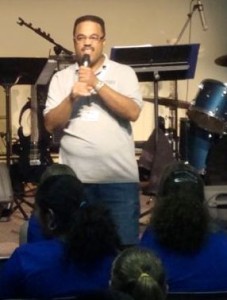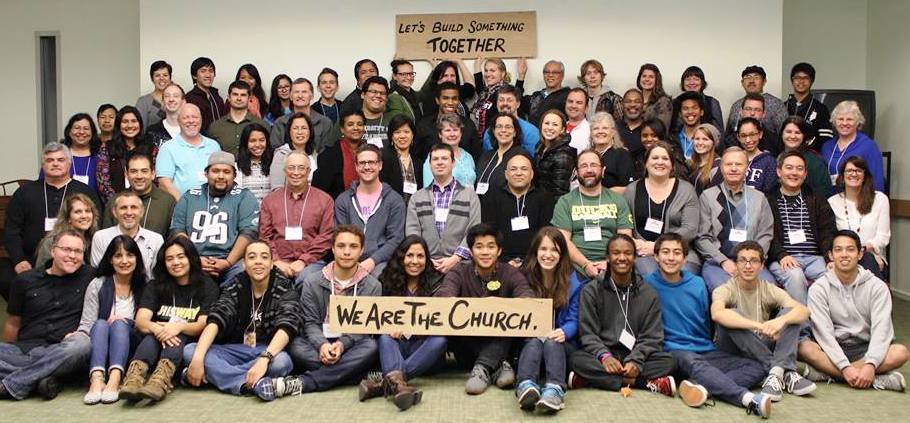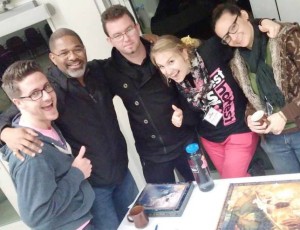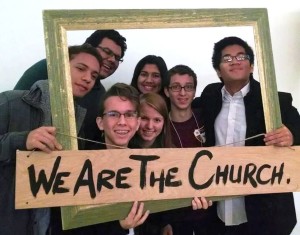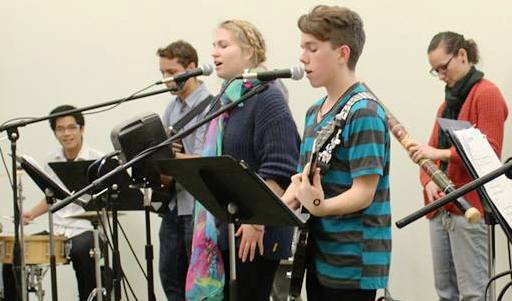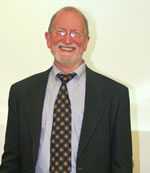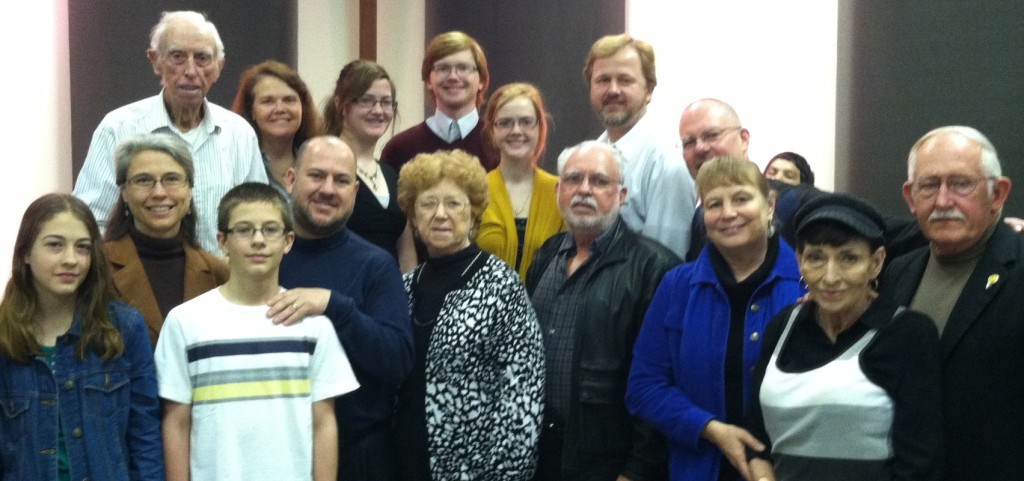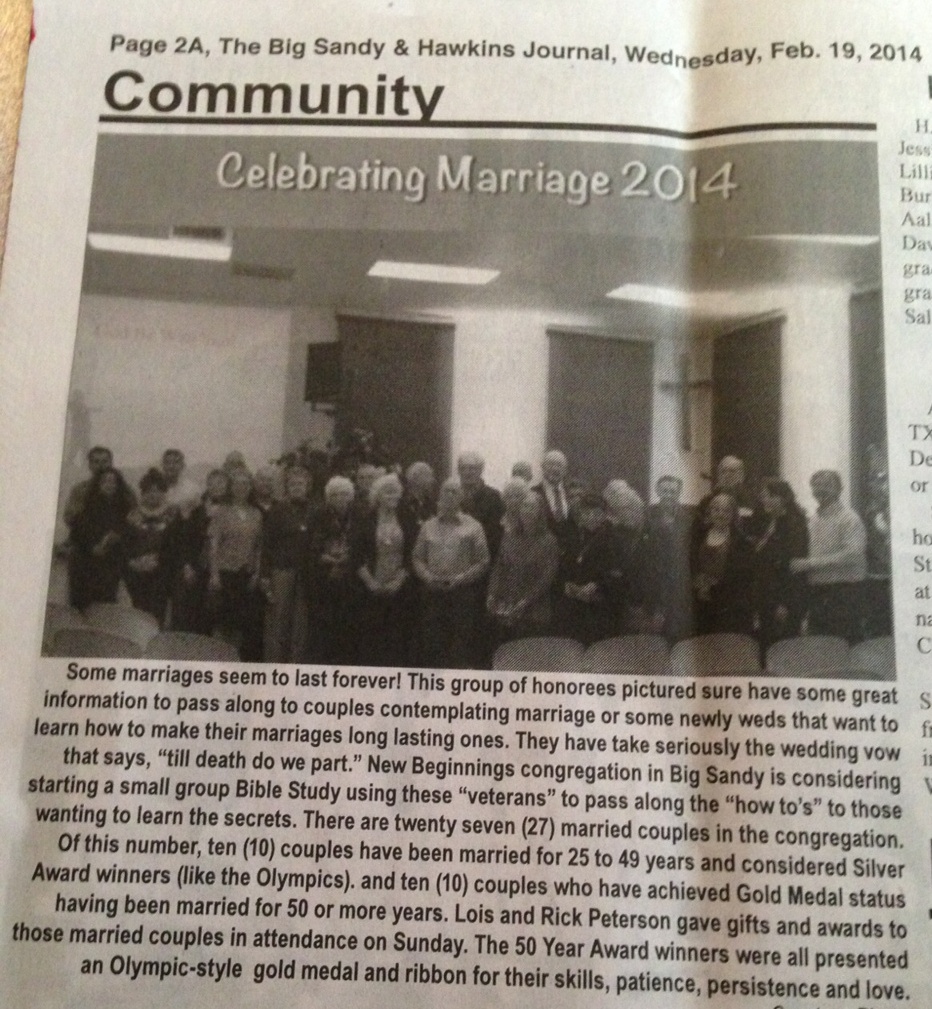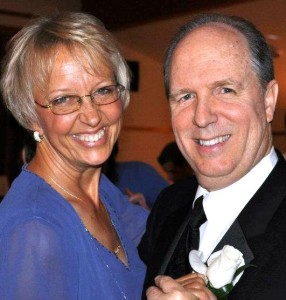In this concluding article in a six-part series on the kingdom of God, Gary Deddo examines the relationship of the church and the kingdom. This is an important topic because this relationship is often misunderstood. For the other articles in this series, click on the corresponding number: 1, 2, 3, 4, 5.
The church and the kingdom
Broadly speaking, three views have been suggested regarding the relationship of the church and the kingdom of God. The view that fits with the biblical revelation and with a theology that takes the person and work of Christ and the Spirit into full account aligns well with what George Ladd laid out in his Theology of the New Testament. Thomas F. Torrance has helpfully brought out some important implications for such a view.
Some have thought of the church and the kingdom of God as being essentially identical. Others have regarded them as distinct, if not entirely separate. [1] Grasping the complete biblical account requires a comprehensive survey of the New Testament involving many passages and subtopics, which Ladd has done. On that basis, he offers a third alternative, namely, that the church and the kingdom are not identical but that they cannot be separated. They overlap. Perhaps the simplest way to indicate the relationship is to note that the church is the people of God. These people are the subjects of the kingdom, but they cannot be equated with the kingdom that is identical with the full rule and reign of God through Christ in the Spirit. The kingdom is perfect, but the church is not. The subjects are subjects of the King, but they are not the King himself and should not be confused with him.
The church is not the kingdom of God
In the New Testament the church (ekklesia in Greek) is identified as the people of God gathered or assembled into a fellowship in this current age (the time since Christ’s first advent). They gather in response to the proclamation of the gospel taught by the first apostles—those who were authorized and sent by Jesus himself. The people of God receive the message of the biblical revelation preserved for us and who, by repentance and faith, respond to the reality of who God is as disclosed in that revelation. As described in the book of Acts, they are the ones who “devoted themselves to the apostles’ teaching and to fellowship, to the breaking of bread and to prayer” (Acts 2:42).
At first, the church was made up of faithful remnants of ancient Israel who believed that Jesus fulfilled the promises made to them as God’s Messiah and Redeemer. But almost immediately, beginning with Pentecost, the people of God expanded to include all nations, tongues and ethnicities (ethnoi). The people of God thus became international, fulfilling God’s promises to bless all nations through Israel (Genesis 12:2-3) and to pour out the Spirit upon all people (Joel 2:28).
According to Peter, the church is an international priesthood for the sake of all the nations (1 Peter 2:9-10). God’s intention for this reconfiguration of his people was demonstrated at Pentecost by the pouring out of the Holy Spirit upon representatives of a host of the nations of the earth who had been drawn together in one place (Acts 2). There is one church, one multinational people, meeting or gathering in numerous local congregations. Together they are the church or the body of Christ. The church gathers around Christ and his Word, being drawn by his Spirit as God works through those called to preach and teach. They then pass on the good news of Christ and his present and coming kingdom. This much is clear in Paul’s writings regarding the nature of the church (see, for example, Ephesians 4:4-6).
God’s people under grace, not the ideal people
However, the New Testament indicates that this people will not be ideal, will not be perfect. This comes out especially in the parable of the gathering of fish in the net (Matthew 13:47-49). The church community gathered around Jesus and his word will eventually need to be sorted out. There will come a time when it will become clear that some who have been associated with this community have not been receptive and responsive to Christ and the Spirit, but have actually resisted and rejected them. That is, some who have been a part of the community will not have come under Christ’s rule and reign but rather have refused to repent and receive the grace of God’s forgiveness and the gift of the Spirit. Others will be inconsistent in their response and receptivity to the working of Christ in submission to his word. All will have to fight the fight of faith every day. All will be addressed and compassionately confronted by the Spirit’s work of sharing with us the sanctification Christ himself worked out in his humanity—a sanctification that calls for daily dying to our old, false selves. So the life of this church community will be mixed, not ideal, not pure. The church, then, will continually live in God’s grace. It will be the first to repent—and be continually renewed and restored.
Much of the instruction given to the church throughout the New Testament indicates an ongoing process of renewal that includes repentance, faith, growth in understanding, prayer, resisting temptation, correction and restoration. None of this would be needed if the church were expected to manifest the ideal now. The shape of this dynamic life of growth fits well with the idea that the kingdom of God is not manifested in its fullness in this age. The people of God are those who wait in hope—their lives are hidden in Christ (Colossians 3:3), often looking now like ordinary earthen vessels (2 Corinthians 4:7). We too are waiting to enter into our full and complete salvation.
The kingdom preached, not the church
It should be noted, as does Ladd, that the first apostles did not preach the church, rather they preached the kingdom of God. Those who responded positively to their message then drew together as the church, as Christ’s ekklesia. This means that the church, the people of God, is not an object of faith or worship. Only the Father, Son and Holy Spirit are objects/subjects of faith and worship.
The preaching and teaching of the church should not make itself the object of faith, should not be preoccupied with itself. This is why Paul points out that “what we proclaim is not ourselves, but Jesus Christ as Lord, with ourselves as your servants for Jesus’ sake” (2 Corinthians 4:5 ESV). The message and ministry of the church should point away from itself to the reign of the Triune God, the source of its hope—because God will establish his reign throughout creation, a reign inaugurated by Christ in his earthly ministry and in the coming of the Spirit, but yet to be consummated. The church gathered around Christ looks back to his finished work and forward to the completion of his continuing work. Those are the proper objects of its focus.
The kingdom of God is not the product of the church
The distinction between the kingdom and the church is also apparent in that the kingdom is strictly spoken of as the work and gift of God. It cannot be erected or built by humans, not even those who are part of God’s new fellowship. In the New Testament, persons can receive, enter and inherit the kingdom, but they cannot destroy it or bring it to earth. They can do things for the sake of the kingdom, but the kingdom is never subject to human agency. Ladd is especially emphatic on this point.
The kingdom of God: inaugurated but not yet consummated
The kingdom has been inaugurated, but is not yet fully manifested and consummated. As Ladd likes to say, it is “already, but not yet.” The kingdom on earth is not yet fully realized. All people, whether joined to the fellowship of the people of God or not, live in this as-yet-to-be-consummated epoch of time.
The church itself, the fellowship of people gathered around Jesus Christ with his gospel and mission, does not escape the problems and limits of still living under fallen conditions subject to sin and death. Thus the church needs continual renewal and refreshment. It needs continuously to abide or remain in fellowship with Christ, living under his Word, being continually nourished, renewed and restored by his gracious Spirit.
Ladd summarized the relationship of the church and the kingdom in these five points: [2]
1) The church is not the kingdom.
2) The kingdom creates the church—the church does not create the kingdom.
3) The church witnesses to the kingdom.
4) The church is the instrument of the kingdom.
5) The church is the custodian of the kingdom.
In sum, we can say that the kingdom of God includes the people of God, but not all those who gather with the church at any given time are necessarily submitting to the kingdom-reign of Christ. The people of God are those who have entered the kingdom and are submitting to the rule and reign of Christ, but some of those associated with the church at any given time may not manifest very much of the character of the present and coming kingdom. Some may still be resisting God’s grace offered to them by Christ in and through the church’s ministry.
So we see that the kingdom and the church are inseparable, though not identical. When the kingdom comes in its fullness with Christ’s return, the people of God will all come fully under his rule and reign, and their lives together will perfectly manifest that truth.
Implications of the distinction yet inseparability of the church and the kingdom of God
There are many implications related to the distinction between the church and the kingdom of God. We can only touch here on a few here.
Embodying concrete witness to the coming kingdom
An important implication of both the distinction and the inseparability of the church and kingdom is that the church is to be the concrete and visible manifestation of the coming kingdom. Thomas F. Torrance was especially emphatic about this in his teaching. Although the kingdom of God is not yet fully manifest, the church in its common life is to embody a witness here and now in the present fallen age to what is not yet fully present. That is, the church is not simply a spiritual reality that cannot be grasped or experienced here and now, just because the kingdom is not yet fully present. By the Word and Spirit and in union with Christ, the people of God can give concrete evidence in time and space, in flesh and blood, to the watching world of the character of the coming kingdom.
The church will not do this completely or perfectly or permanently. However, since Christ has been victorious over sin, evil and death itself, and since we can have real hope in the coming kingdom, then by the power of the Spirit in union with Christ, the blessing of the coming kingdom can be given form and shape by the people of God. And the primary sign of that coming kingdom is summed up by love—love that mirrors the love of the Father for the Son in the Spirit and the Father’s love for us and his entire creation through the Son and in the Spirit. The church can bear witness to the lordship of Christ in its worship and in its common life as well as in its service to bring about the common good of those not a part of the Christian community.
The single and central evidence the church can give to this reality is its offering of communion at the Lord’s Table as interpreted by the preaching of the Word in its worship. Here, in the church gathered, we have the most concrete, simple, real, direct and effective witness to the grace of God in Christ. At his table we experience the already-and-not-yet reign of Christ in person by the Spirit. At the Lord’s Table we look back to his cross and forward to his kingdom as we share in fellowship with him, as he is present by the Spirit. At his table we get a foretaste of his coming kingdom. We come forward to the Lord’s Table to receive Christ, just as he is proclaimed, as our Lord and Savior.
God is not finished with any of us
Living between the times of Christ’s first advent and his second advent has another important implication. It means that everyone is on a spiritual pilgrimage—in an on-going “becoming” relationship with God. God is not finished with anyone in drawing them to himself and in transforming them to trust him more and more and receive his grace and new life every moment of every day. The church’s mission is to continue to proclaim and live out as best it can the truth of who God in Christ is and to continually bear witness in word and deed to the nature and character of Christ and his coming kingdom. Yet, we cannot know ahead of time who will turn out to be weeds or bad fish (to use Jesus’ imagery). God has to do the final sorting himself, in his own time. It is not up to us to speed up (or slow down) the process. We are not the final judges here and now. Rather, we are to remain faithful and patiently discerning while hopeful of God’s work in everyone by his Word and Spirit. Staying “on message” and keeping first things first, majoring in the majors and minoring in the minors is important in this time between the times. And of course, we must discern which is major and which is minor.
Second, the church provides a fellowship of love. The church’s primary “job” is not to insure an ideal or absolutely pure church by making its priority keeping out or rooting out those people who join in the fellowship of God’s people but who are not yet believing or whose lives do not yet manifest much of the life of Christ. It is impossible to do so in this present age. As Jesus taught, attempting to dig out the tares (Matthew 13:29-30) or separate the fish (verse 48) in this age will not bring about an ideal fellowship, but will instead damage the body of Christ and its witness. It will always amount to some “lording it over” others in the church. It will add up to a severe and judgmental legalism that will not represent Christ’s own ministry, nor faith and hope in Christ’s coming kingdom.
Third, the mixed nature of the church assembly also does not mean that just anyone can serve in its leadership. The church is not at root a popular democracy, even if some of its practical deliberations are conducted in that manner. There are clear criteria for church leadership noted in various places in the New Testament and practiced in the early church as recorded in the book of Acts, for example. Leadership is a matter of spiritual maturity and wisdom. Leadership must be prepared, and exhibit maturity in their relationship with God through Christ according to Scripture. Their lives will come to exhibit a genuine, joyful and free desire to serve Jesus Christ above all by participating in his ongoing mission and ministry out of faith, hope and love.
But finally and most importantly, leadership in the church is a matter of Christ’s calling by the Spirit and the confirmation by others to the Spirit’s calling or appointing individuals to serve in particular ways. Exactly why some are called and others are not will not always be known. So some, who by grace have great spiritual maturity, still might not be called to formal or ordained leadership! God’s calling to leadership or not has nothing to do with God’s approval of them or not. It has to do with the often hidden wisdom of God. However, given the criteria laid out in the New Testament, confirmation of their calling will include the matter of character, reputation and weighing evidence of their willingness and ability to equip, encourage and enable the members of the local congregation to trust in Christ and to join in his mission as best they can at any given moment.
Hopeful discipline and discernment
Living between Christ’s advents does not rule out the need for appropriate church discipline, but it will be a discerning, patient, compassionate and even longsuffering discipline in hope for every individual because of God’s love for all. It will not, however, allow members to trample fellow sheep (Ezekiel 34) but will take measures to protect them. It will give hospitality, fellowship, time and space for people to seek God and his kingdom ways, and time to repent, receive and grow towards Christ. But there will be limits as to what is allowed, so as to monitor and limit harm done to other members.
We see this dynamic at work in the early life of the church in the New Testament. The book of Acts and the epistles bear witness to this internal ministry of discipline within the church. It calls for wise and compassionate leadership. However, it will not be possible to attain perfection in church discipline. Nevertheless, it must be pursued because the alternatives, either no discipline at all or harsh, judgmental and self-righteous idealism, are both wrong ways to go, and unfaithful to Christ.
Christ accepted all those who came to him, but he never left them where they were. Rather, he directed them to follow him. Some did and some didn’t. Christ accepts us all where we are, but in order to take us where he is going. The church’s ministry is one of receiving and welcoming, but also of directing and disciplining those who remain to repent and trust in Christ and to follow in his ways. Although, as a last resort, dis-fellowshipping may be necessary, it should be done in the hope of future restoration, as we have example in the New Testament (1 Corinthians 5:5; 2 Corinthians 2:5-7; Galatians 6:1).
The church’s message of hope in Christ’s continuing ministry
Another implication of the distinction and connection between the church and kingdom is that the message of the church must include speaking about the continuing work of Christ, not just the completed work of the cross. That is, our message should indicate that all the effects of what Christ has accomplished through his saving work have not yet been worked out in history. His earthly ministry did not bring about and was not intended to bring about an ideal world here and now.
The church is not the realization of God’s ideal. The gospel we preach should not lead people to believe that the church is the kingdom, God’s ideal. Our message and example should include a word of hope about Christ’s coming kingdom. It should be clear that the church is made up of a mixed people, people who are on the way, people who are repenting and being renewed and restored to faith, hope and love. The church, then, is a herald of that coming kingdom, of the fruit guaranteed by Christ himself, crucified and resurrected. The church is the people who live in the presence of the kingdom by the grace of God each day and in hope of the consummation of Christ’s rule and reign in the future.
Repenting of idealism to take up hope in the coming kingdom
Too many have gotten the idea that Jesus came to set up here and now an ideal people or to establish an ideal world. The church itself may have given this impression, perhaps thinking that is what Jesus intended. It may be that much of the unbelieving world rejects the gospel because the church has failed to achieve the ideal community or world. Many seem to believe that Christianity offers a form of idealism—but then notice that such idealism has failed to be realized. Consequently, some reject Christ and his gospel because they’re looking for an established ideal, or at least one that can be realized soon, and find that the church doesn’t have this to offer. Some will want the ideal now, instantly or nothing at all. Others may reject Christ and his gospel because they have given up altogether and have already lost hope in everyone and everything, including the church. Perhaps some have left the community of faith because the church did not realize an ideal they thought God was going to help his people accomplish. Those making this assumption—which amounts to identifying the church with the kingdom—will conclude that either God failed (perhaps by not helping his people enough), or that his people failed (possibly by not trying hard enough). In either case, the ideal wasn’t realized, so for many there seems to be no reason for continuing to be a part of this community.
But Christianity is not about becoming ideal people who realize an ideal community or world with God’s help. This Christianized form of idealism insists that if we would just be pure enough, sincere enough, committed enough, radical enough, or clever enough with our strategies, we would make real the ideal that God desires for his people. Since this has never happened in the entire history of the church, the idealists know just where to place the blame—on other, “so-called Christians.” In the end, the finger of blame often points back on the idealists who find that they too are unable to meet the ideal. When this happens, idealism collapses into a heap of hopelessness and self-accusation.
The gospel truth is that by God’s grace, the blessings of a future kingdom already have broken into this present evil age. Because this is so, we can share now in the benefits of what Christ has done before his kingdom is fully manifested and established. The primary evidence of the certainty of this coming kingdom is the life, death, resurrection and ascension of the living Lord. He promised the arrival of his future kingdom and taught us to only expect now in this current evil age a foretaste, a down payment, the first fruits, an inheritance of that kingdom to come. We must preach hope in Christ and his finished and continuing work, not Christian idealism. We do so by distinguishing the church and the kingdom while also noting its connection in Christ by the Spirit and our participation as witnesses—living signs and parables of the coming kingdom.
In summary, the distinction yet connection between the church and kingdom means that the church is not to be an object of worship or of faith, for that would be idolatry. Rather, the church points away from itself to Christ and his mission. It does have a share in that mission: to point away from itself, by word and deed, to Christ, who leads us in our worship and who makes us new creatures in him in hope of a new heaven and earth that can only be realized when Christ himself, the Lord and Savior of the universe, returns.
Christ’s ascension and return
A final element that ought to contribute to our understanding the kingdom of God and our relationship to Christ’s rule is Christ’s ascension. Jesus’ earthly ministry came to a close not with his resurrection, but with his ascension. Jesus left the earthly realm and the present age to relate to and interact with us in a different way. That way is through the Holy Spirit. By the Spirit, he is not absent. He is present in a certain way. Yet he is also absent in a certain way.
John Calvin used to say that Christ was “in a manner absent and in a manner present.” [3] Jesus indicates his being in some way absent by telling his disciples that he is going away to prepare a place where they cannot now follow him. He is going to be with the Father in a way he wasn’t while on earth (John 8:21; 14:28). He knows his disciples may regard this as a disadvantage, but instructs them rather to regard it as a step of progress and so of benefit to them, even though it does not represent the final and full benefit to come. The Spirit that was with them will now be able to be in them, indwell them (John 14:17).
However, Jesus also promises that he will return—and return in the same way that he left—in human form, bodily, visibly (Acts 1:11). His being away for now corresponds to the kingdom not yet being consummated and so being, in a way, absent. The present evil age is in a state of passing away, ceasing to be present (see 1 Corinthians 7:31; 1 John 2:8; 1 John 2:1).
All things are now in the process of being put under the authority of the reigning King. When Jesus completes that phase of his ongoing ministry, he will return, and the extent of his universal rule and reign will be in full effect—all of who he is and what he has done will then be evident to everyone. Every knee will bow and everyone acknowledge the truth and reality of who he is (Philippians 2:10). Only then will the totality of his work be manifested.
So his absence indicates something important that corresponds with other teaching. While he is away, the kingdom will not be universally acknowledged. The extent of Christ’s reign will not be fully manifested, but remain to a significant degree hidden. Many aspects of the current fallen age will continue to express themselves and do so even at the expense of those who identify with Christ and acknowledge his kingdom and his kingship. Suffering, persecution, evil, both moral (enacted by human agents) and natural (the result of the fallenness of nature itself), will continue. Evil will continue to the extent that it will appear to some as if Christ was not victorious and his reign not preeminent.
Jesus’ own parables about the kingdom indicate that our present experience will involve a mixture of responses to the Word, living, written and preached. Some soils to one degree or another will resist the Word being sown, while others will receive it. The field of the world will contain both wheat and tares. The nets will catch fish both good and bad. The church will be persecuted, and those blessed in it will hunger for righteousness and peace and a clear vision of God. Jesus does not envision the appearance of an ideal world once he has departed. Rather, he takes measures to prepare his followers to expect that his victory and redemption will only be fully apparent some time in the future.
This means that living in hope is essential to the life of the church, but not with the misguided hope (idealism really) that, with just a little more effort (or a lot) from a few more people (or a lot), we will realize the ideal, bring in the kingdom or gradually build the kingdom. Rather, the good news is that in God’s good time—at just the right time—Christ will return in full glory and power, vindicating our hope and regenerating heaven and earth, making everything new. The ascension then reminds us that we should not expect Christ and his rule and reign to be entirely manifested, but remain hidden at some distance. His ascension signals to us the need to continue to hope in Christ and the future outworking of what he accomplished in his earthly ministry. It reminds us to wait and live now confidently and expectantly for Christ to return, bringing with him the fullness of all his redemption as Lord of lords and King of kings, the Savior of all creation.
Conclusion to this series
With these words of hope we bring to a close our series on the kingdom of God. As incomplete as it is, I trust the God of all grace may find a way to edify you with it.
____________
[1] For much of what follows I am indebted to Ladd’s discussion, A Theology of the New Testament, pp. 105-119.
[2] Ladd, pp. 111-119.
[3] See Calvin’s Commentary on 2 Corinthians 2:5.
___________
Here is a video that illustrates some of the concepts in this article concerning the kingdom of God and the church.
This video is posted at http://youtu.be/gVHz34eiSPE.
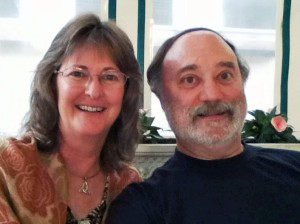 About 1900 years ago, the writer of the epistle known as Third John began with these words: “Dear friend, I pray that you may enjoy good health and that all may go well with you, even as your soul is getting along well” (3 John 1:2). Though this is not an absolute promise in the way “health and wealth” preachers often claim that it is, it certainly is more than a casual greeting like our familiar, “have a nice day.” For many, good health is a benefit of living a faithful, Christ-centered life.
About 1900 years ago, the writer of the epistle known as Third John began with these words: “Dear friend, I pray that you may enjoy good health and that all may go well with you, even as your soul is getting along well” (3 John 1:2). Though this is not an absolute promise in the way “health and wealth” preachers often claim that it is, it certainly is more than a casual greeting like our familiar, “have a nice day.” For many, good health is a benefit of living a faithful, Christ-centered life.

